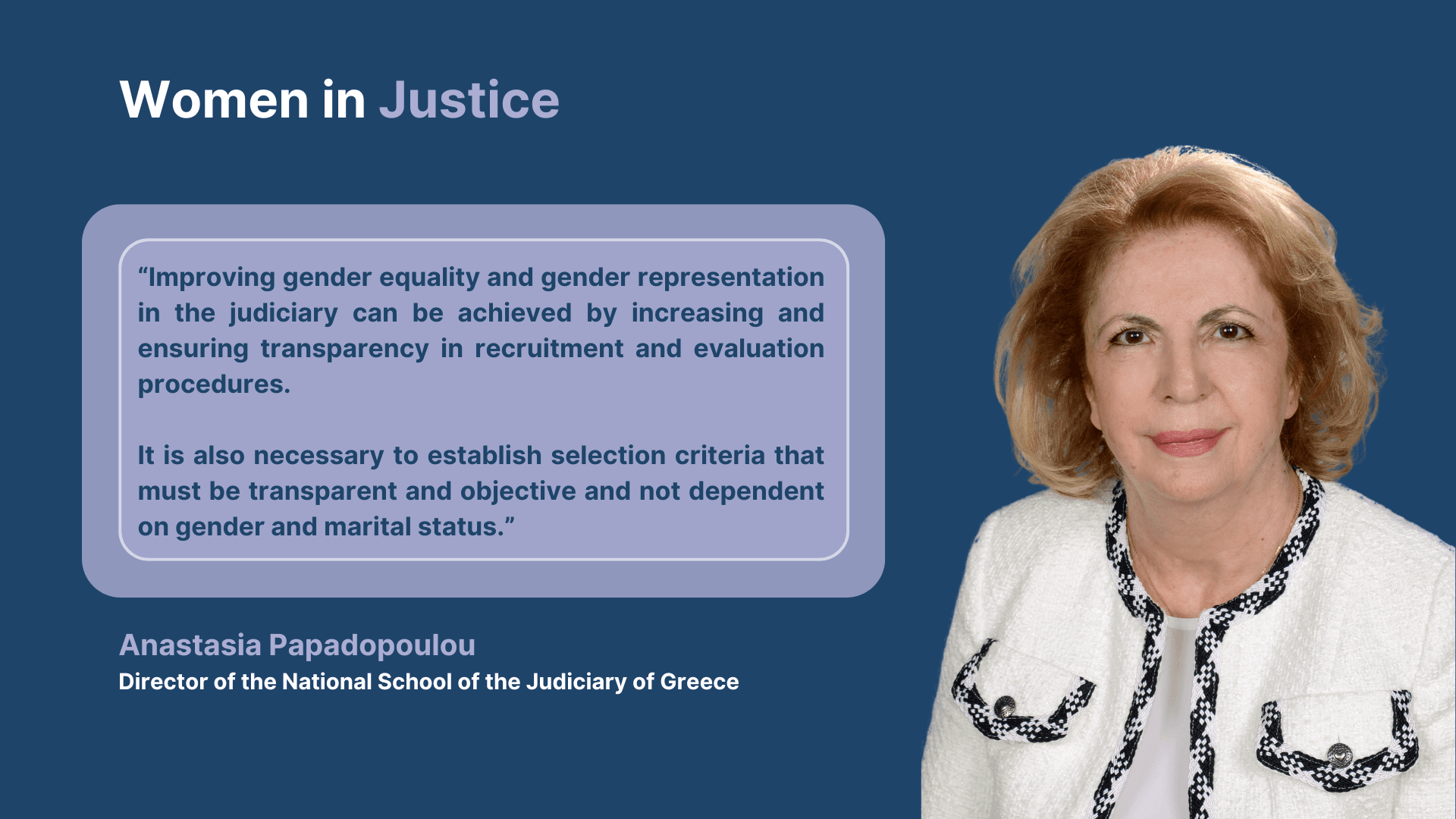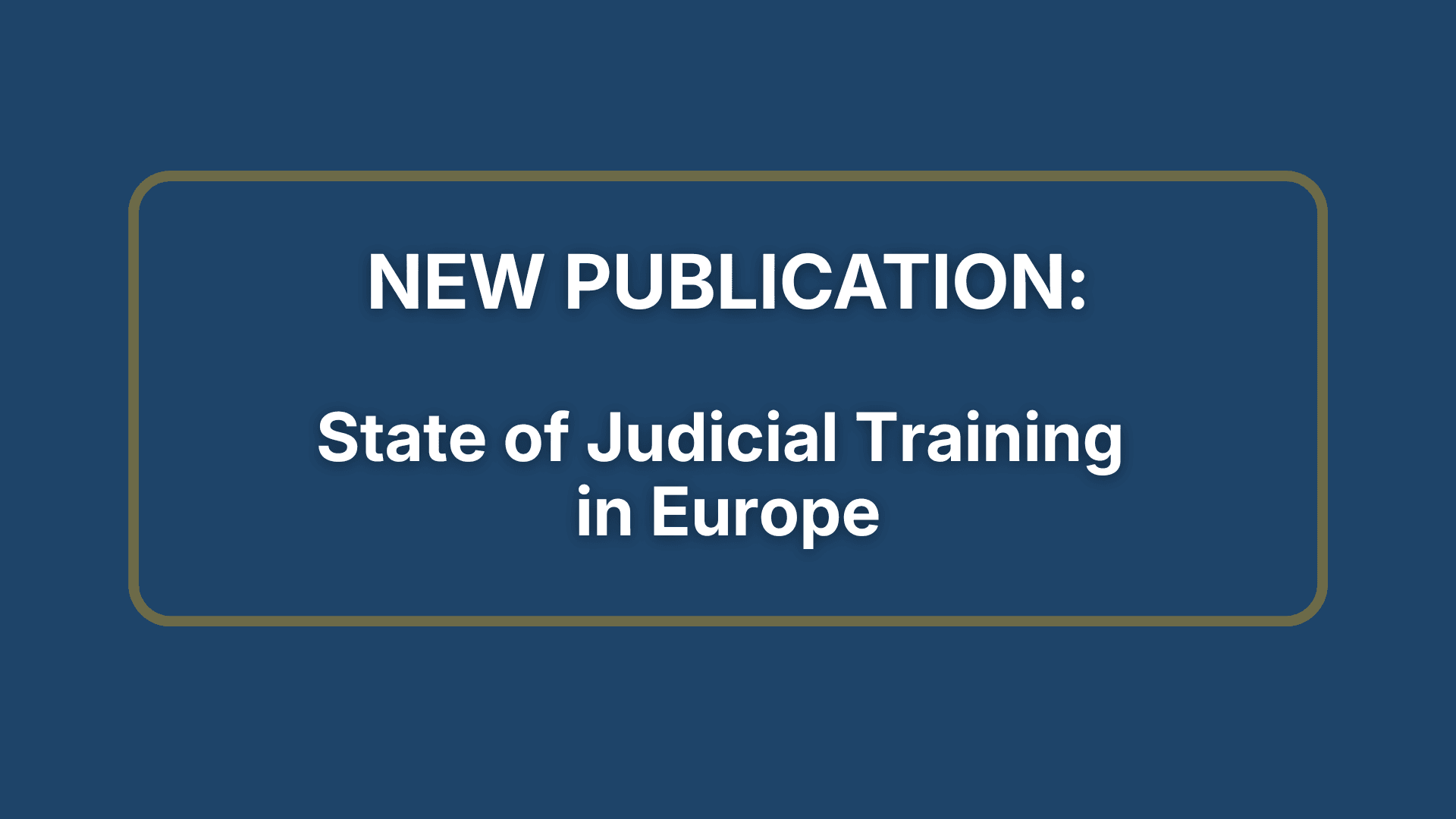Anastasia Papadopoulou is the first woman to lead the National School of Judiciary of Greece, and throughout her career she has played a key role in promoting gender equality in justice. In this interview, she highlights the importance of transparent promotion systems and the value of European cooperation in addressing common challenges like gender equality and human rights.
This interview series was first launched in connection with the International Day of the Girl Child 2024, with the goal of highlighting some of the inspiring women leaders within our Network. We continue to publish interviews in this series periodically.
As the first woman General Director of the National School of Judiciary of Greece, you have broken significant barriers in the legal field. What do you believe are the most important steps towards achieving gender equality in high-level judicial positions?
According to the Greek judicial system, to be admitted to the judiciary, lawyers are required to take examinations and attend the National School of Judiciary. Subsequently, promotion to higher positions is based exclusively on the order of their admission to the judiciary (yearbook), in conjunction with the control of the proper performance of their judicial duties and by a body consisting only of judges (Supreme Judicial Council of the Supreme Court).
Objectively, and because there are multiple constitutional guarantees, both for the functional independence of judges and for their personal independence and development, there are no differentiation between the sexes in their election to senior judicial positions.
However, the position of President of the Supreme Court in Greece has, in recent years, increasingly been occupied by women judges who are competent, deserving and dedicated to their judicial duties. I believe that these are the most important steps for women judges to take on high positions.
Institutions like the European Judicial Training Network are key to supporting legal education and collaboration across Europe. How do you think judicial training and international cooperation can help judges address evolving societal challenges, such as gender equality and human rights?
The European Judicial Training Network should aim, among other things, at the creation of a single European area of justice as well as at the promotion of mutual information-sharing on European legal systems, and finally at the unification of European law. This is because social challenges, such as gender equality and human rights, should be addressed in a similar way in the countries of Europe, where unified European law will be in force.
The European dimension of the judicial function should also be highlighted and mutual understanding of the different judicial systems should be promoted, which should ultimately converge at least on the above-mentioned issues, in similar arrangements for all European countries. The organisation of seminars on the commercial practice of surrogacy, a phenomenon which exposes women throughout the world to exploitation and trafficking in human beings is also of great importance.
Having worked at the highest levels of justice, how do you think gender equality and representation within the judiciary can be improved in Greece and across Europe?
Improving gender equality and gender representation in the judiciary can be achieved by increasing and ensuring transparency in recruitment and evaluation procedures. It is also necessary to establish selection criteria that must be transparent and objective and not dependent on gender and marital status. In Greece, women are in the majority in the judiciary.
For young women aspiring to enter the judiciary or legal professions, what advice would you offer?
In principle, human beings, they are required to be endowed with virtues and special qualities, such as humanity, self-respect, honesty, sobriety, integrity, scientific honesty, loyalty, impartiality and not only legal knowledge.
Subsequently, targeted selection, serious and methodical effort is required to achieve it, and balance in personal and family life. All this is necessary because judges with their judicial work, as well as lawyers with their services, are called upon to ensure the peaceful coexistence of citizens, the peaceful resolution of disputes, the smooth and safe operation of transactions, and in this way, justice emerges as a key pillar for the social and economic well-being and development of countries.
To learn more about the National School of the Judiciary of Greece, visit their website.




